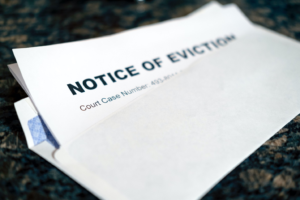
Are you a tenant struggling to pay the rent or a landlord who hasn’t received the rent due to the COVID-19 global health crisis? This guide will help you understand the restrictions imposed by the Coronavirus Act 2020, how it affects a residential tenancy, and what practical steps need to be considered within this context.
What Was The Coronavirus Act 2020?
The Coronavirus Act 2020 received the Royal Assent on 25th March 2020. It imposed some changes to the Landlord & Tenant related legislation, with particular focus on a landlord’s rights to seek possession of residential premises under an assured short hold tenancy. Here are a few pointers that will help you understand the changes made in the new legislation:-
Point #1
The Act postponed a landlord’s ability to file proceedings against a tenant or enforce an existing Judgment. The moratorium period started from 25th March 2020 but has since ended thereby allowing for enforcement of both existing court orders and newly served notices seeking possession.
Point #2
Any notice served had to increase the time frame offered before enforcement, by way of the county court, was permitted. The notice period for section 21 notice was increased and currently stands at 4 months. The time frame for section 8 notices was also increased but staggered depending on the level of arrears.
Where a breach related to rent arrears for example and where a tenant is more than 4 months in arrears, a landlord must offer a minimum of 28 days before enforcement can be taken forward.
If the arrears are currently less than 4 months then a landlord must offer a minimum of 2 months. Failing to offer the required time frame will render the notice defective and undermine the chances of securing a favourable outcome.
All effort should be made to try and find a way forward which avoids the need for litigation. If a tenant can get a tenancy back on track with the offer of some latitude then it will certainly forge a stronger relationship going forward.
Point #3
Ensure the latest templates for form 3 (section 8) and form 6a (section 21) are utilised where applicable. These will reflect the current legislative mandated time frames in operation at the time of service. They will also include the recent legislative considerations such as the Debt Respite Scheme (Breathing Space Moratorium and Mental Health Crisis Moratorium) (England and Wales) Regulations 2020. Any shortcomings at any stage in the possession procedure can impair your chances of securing a favourable outcome should you need to put your case before the County Court.
Point #4
The court system has now introduced a new layer of administration specifically designed to consider whether the COVID-19 pandemic directly contributed to the tenant’s failure to pay the rent. The courts will seek information relating to your understanding of their circumstances which will then influence how the court deal with the proceedings and where your claim is placed in the queue. The additional time frame this has brought about should give thought as to whether you should offer you tenant additional time to pay any arrears which may have accrued if they have shown both a willingness and ability to get the tenancy back on track.

The Coronavirus Act 2020 might not seem like a complete silver bullet for renters looking to manage cash flow, but it has offered some much-needed breathing space. However, tenants should remember that the moratorium period has ended and the accrual of rent arrears from here onwards is unlikely to yield a sympathetic ear from the court.
From 1st October 2021, all enforcement variations will revert back to pre-pandemic levels.
If you’re looking for advice regarding evicting your tenant, Landlord Assist, a leading eviction company in the UK, has a team of Residential Eviction Specialists UK that can help you navigate through the complex tenant eviction process.
Get in touch with us at 08707 662288 or email us at info@landlordassist.co.uk to learn more about our Tenant Eviction services Kent.






